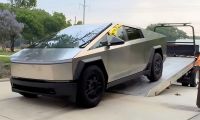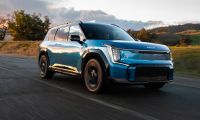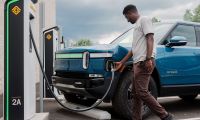Tesla has been making waves with its plans to expand its Giga Berlin Gigafactory in Grünheide, near Berlin, in Brandenburg, Germany. While Tesla had initially stated that it did not require additional water for its factory expansion, recent reports from reputable sources such as Stern magazine and RTL TV station suggest that the company is now seeking to explore water sources independently. By bypassing the state environmental agency, Tesla aims to test drilling for water within the Giga Berlin region itself. However, this approach has raised concerns among critics who worry about potential environmental consequences. In this article I will discuss Tesla's water exploration plans and the controversy surrounding them.
Tesla's Quest for Water:
According to reports from Stern magazine and RTL, Tesla has already begun its search for water sources near the Gigafactory in Grünheide, writes Teslamag. The company plans to conduct a "performance pump test" in the municipality of Braunsdorf and subsequently explore the area of Lebbin, the Berliner Abendblatt reported. The ultimate goal is to ensure a stable and reliable water supply for the Giga Berlin's future expansion. The exploration process is expected to commence during the summer and conclude by autumn.
This recent development follows Tesla's previous consideration of a water deposit near Fürstenwalde, located further east in the Oder-Spree district.
Tesla's "Loophole" Approach:
Tesla has some previous experiences of using loopholes. The motivation behind Tesla's decision to bypass the state environmental agency and go with the district lies in a legal loophole that allows wells with a withdrawal of less than 2000 cubic meters per day in Brandenburg to be approved by district or city water authorities rather than the state.
Tesla applied for permission to test drill in Braunsdorf and Lebbin under this regional regulation in January. While this approach provides an opportunity for Tesla to secure water resources without state approval, critics have expressed concerns about the potential consequences.
Critics argue that Tesla exploiting this regional regulation could have negative implications for the ecosystem. By drilling multiple extraction points within the district, Tesla may exceed the limit on water extraction per well. Detractors worry that such an approach could deplete water resources and pose a threat to the environment in the long term. The State Ministry for the Environment stated that water law procedures also consider the impact of planned water removal on public supply.
Tesla's decision to pursue its own water exploration for Giga Berlin without state approval has sparked controversy. Some critics argue that this move undermines the oversight of the state environmental agency, allowing commercial interests to supersede public and environmental concerns. There have been allegations of close ties between the state government and Tesla, particularly after a letter from the Secretary of Commerce promising support for solving water and energy problems was handed over during a visit to Tesla's Gigafactory in Texas. It should be noted, however, that the "loophole" concerning smaller well approvals has reportedly existed for some time, as neighboring Märkisch-Oderland district initiated exploratory drilling in November 2022 and approved a service water well in March.
Armen Hareyan is the founder and the Editor in Chief of Torque News. He founded TorqueNews.com in 2010, which since then has been publishing expert news and analysis about the automotive industry. He can be reached at Torque News Twitter, Facebok, Linkedin and Youtube.
Set as google preferred source











